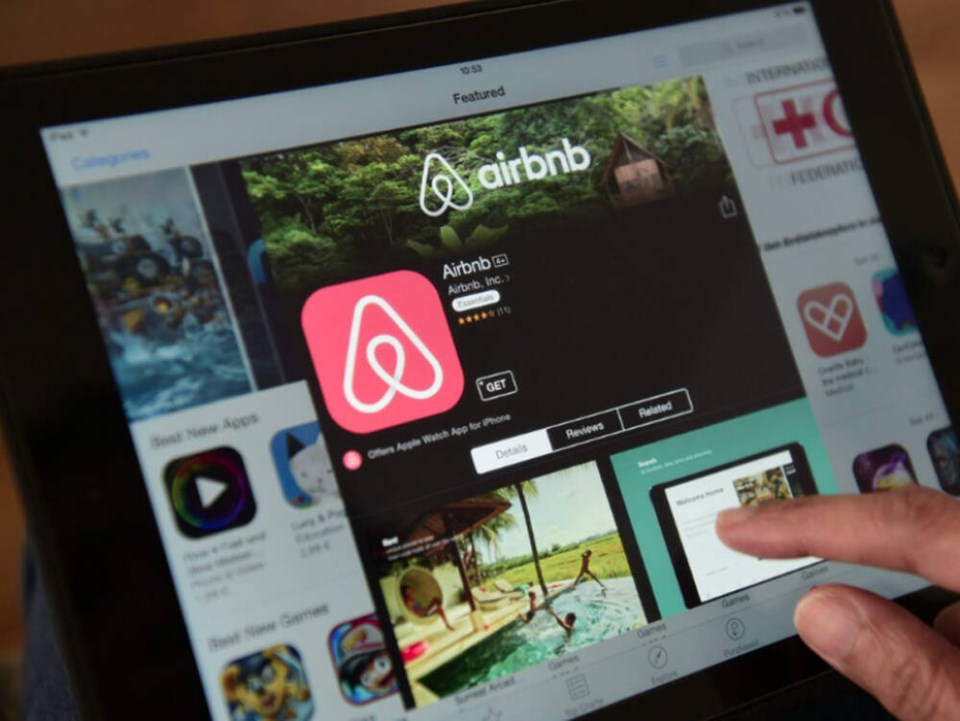Owners of short-term rental properties, already reeling from restrictions brought in by the BC NDP, can expect to get a double-whammy this week courtesy of the federal government.
Finance Minister Chrystia Freeland is set to unveil tax code changes that would ban owners of Airbnb-style properties from writing off their rental expenses against their income, according to a report in the Toronto Star.
The change, to be announced in Tuesday’s economic update, would apply to areas that already restrict short-term rentals, such as British Columbia. It would come into effect Jan. 1, according to The Star.
The new tax crackdown will either be a bitter blow to property owners, or an overdue move to help free up housing supply for long-term rentals, depending on where you stand on the issue.
But there is no doubt the landscape has shifted dramatically for short-term rental operators in just under a month.
Premier David Eby’s government introduced changes on Oct. 16 that effectively forbid most Airbnb-style properties in urban areas, because they restrict short-term rentals to a person’s principal residence, and not their investment properties. The legislation, which passed into law this month, also increased the definition of short-term rentals from 30 to 90 days.
Many owners have decried the changes, saying they purchased their investment properties in good faith and need the cash flow from listing them on platforms like VRBO in order to support their other housing expenses. Some have argued they can’t rent their investment units to long-term tenants because they use those properties part of the year.
The NDP’s legislation also eliminated thousands of units that were grandfathered in under municipal regulations. Some owners have threatened court challenges over that as well.
The Eby government has argued the changes could free up more than 16,000 homes for people to rent or purchase that otherwise were locked into hotel-style rentals.
“We’re getting Airbnb out of homes,” Eby said Saturday during a speech at the BC NDP convention in Victoria.
“Homes are not for real estate speculators and wealthy investors, homes are for people.”
The federal tax changes will be more nuanced, but also strike a serious financial blow for owners.
Currently, a landlord can claim expenses on rental properties, including short-term rentals, that are deducted against the rental income, thereby lowering the taxes they have to pay. The more they claim, the more Airbnb income they can keep, tax-free.
Ottawa’s write-offs are generous, encompassing most maintenance and upgrades to a unit to keep it in working order, as well as rental advertising, insurance, management fees, maintenance services, property taxes, strata fees and even interest on loans.
Removing these exemptions will mean even owners who vacate their principal residence to rent it on Airbnb or VRBO part of the year will end up keeping less revenue, and paying more in taxes back to the federal government.
Freeland will likely face questions Tuesday about whether this is all Ottawa can do on the issue of short-term rentals, or if more is coming. The B.C. government is pleased with the move, and doesn’t have any more specific asks on the table from the feds for short-term rentals.
A seismic shift has occurred in the short-term rental industry in just a few weeks. It’s devastating to investors, who’ve used real estate and Airbnb as a cash-cow for years. But, for everyone else, the changes appear long overdue.
Rob Shaw has spent more than 15 years covering B.C. politics, now reporting for CHEK News and writing for Glacier Media. He is the co-author of the national bestselling book A Matter of Confidence, host of the weekly podcast Political Capital, and a regular guest on CBC Radio. [email protected]




